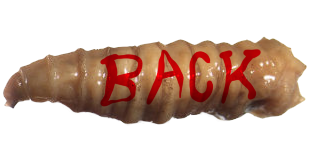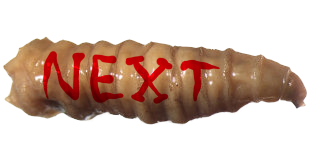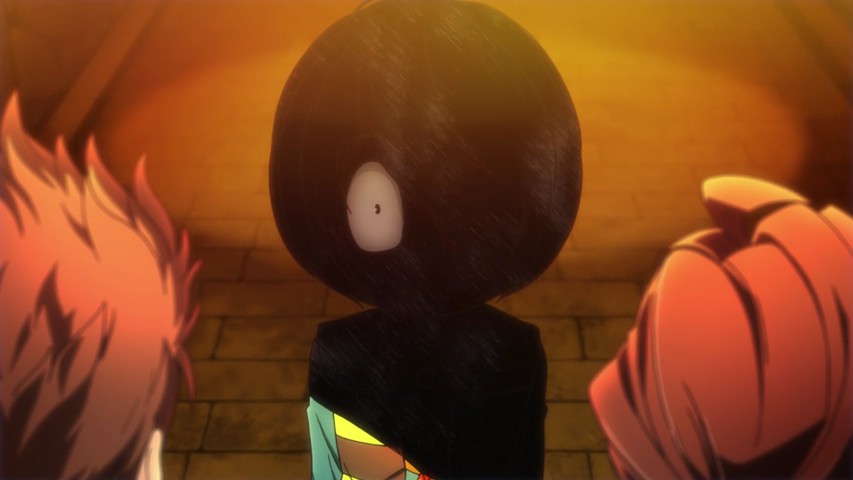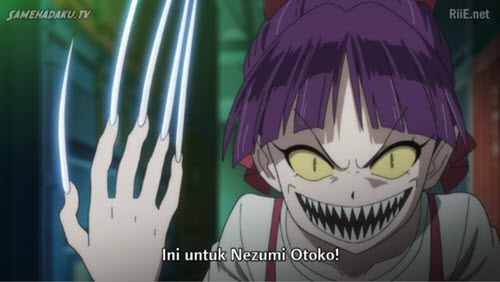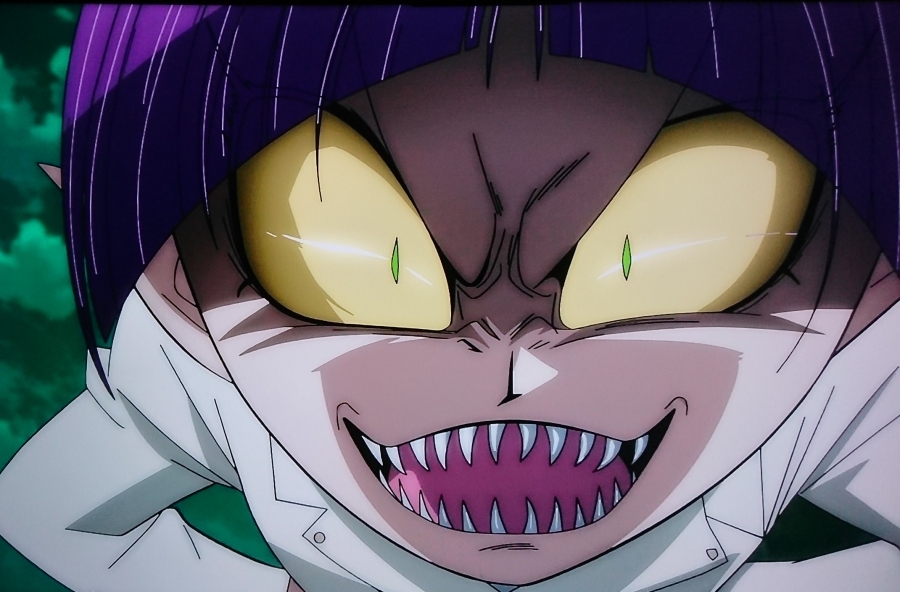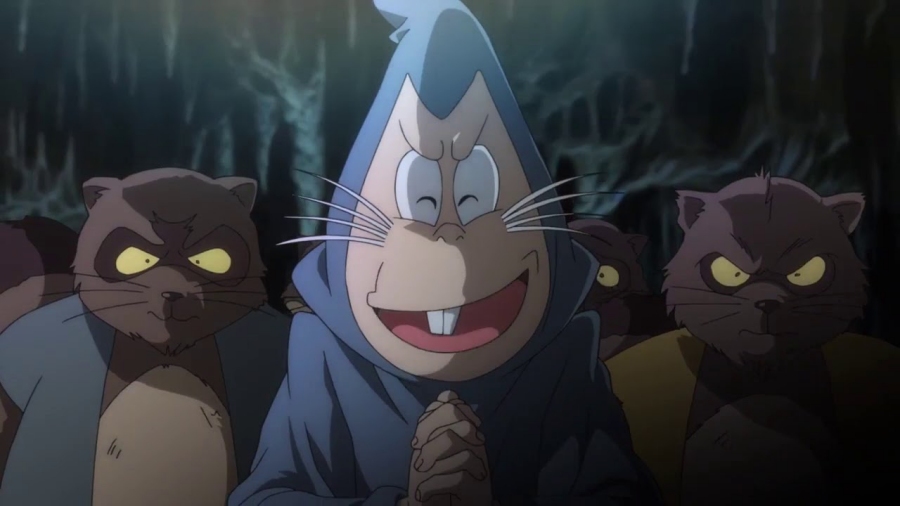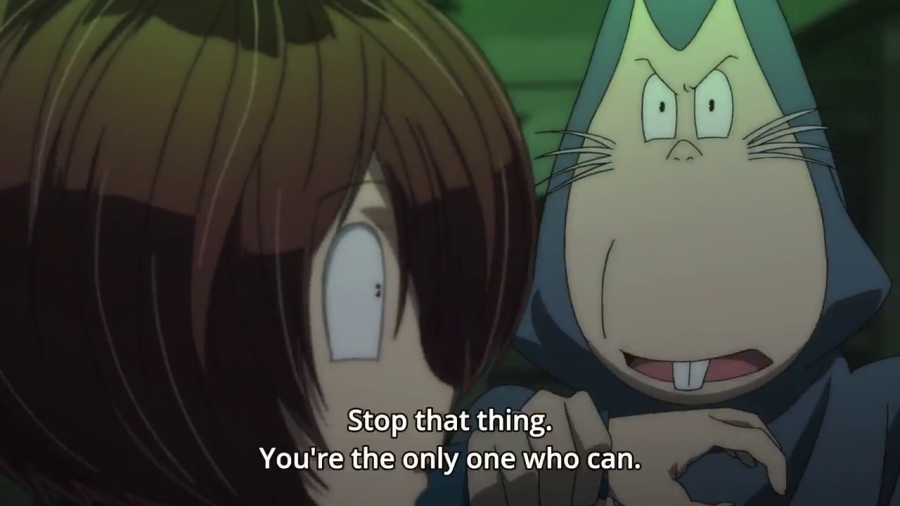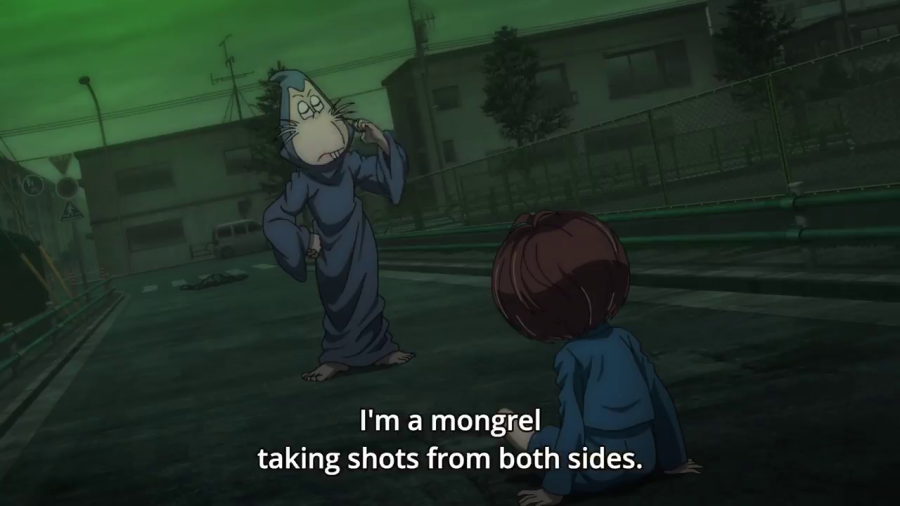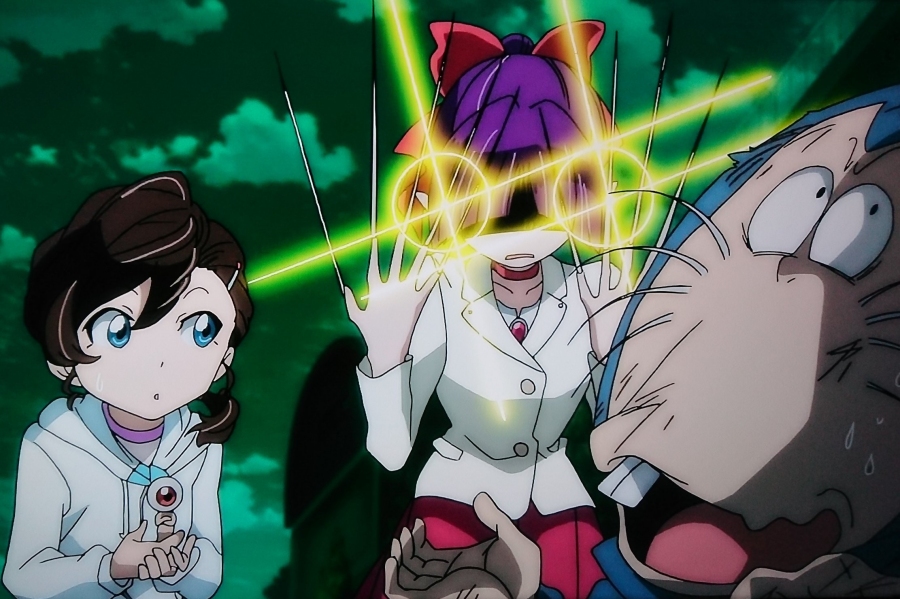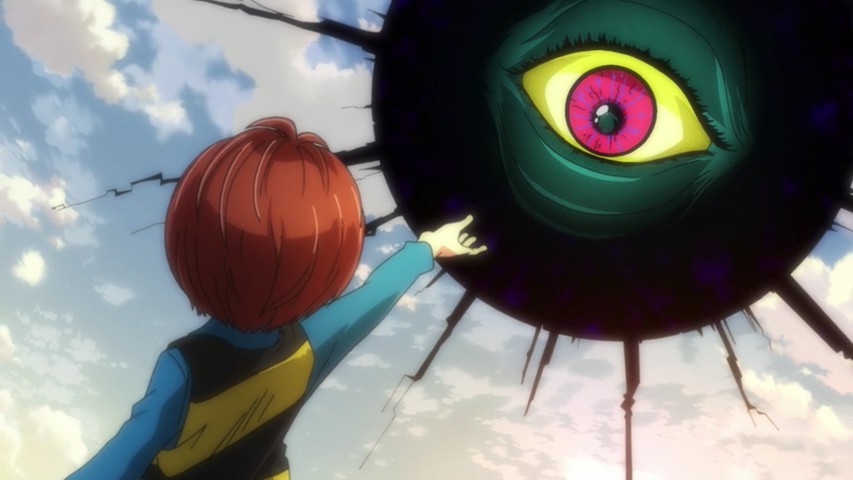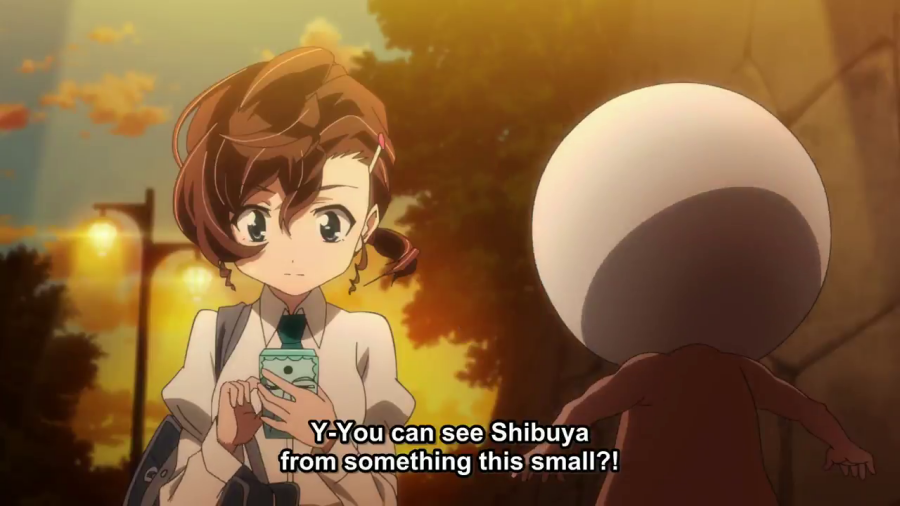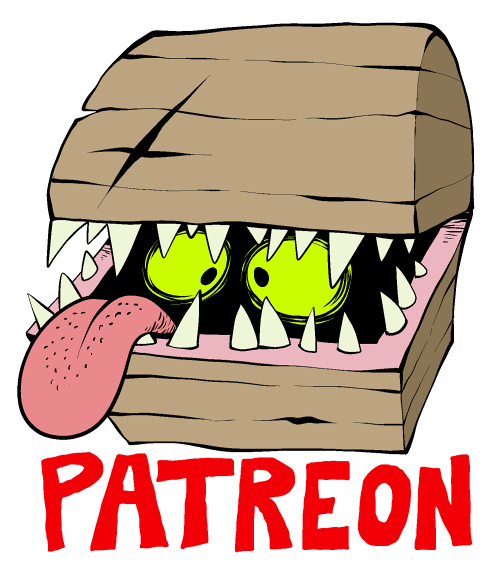Written by Jonathan Wojcik
A Look at Gegege no Kitaro 2019
Back in 2017 I devoted a number of posts to Japan's very spookiest classic franchise, including a basic rundown of its major characters here. This was only right around the time that a brand new series was announced, and given the ups and downs of the previous couple of reboots, I have to say I had my doubts about it. Fortunately, those doubts were laid to rest fairly quickly into its late 2018 debut, and far more of the series has aired over the course of 2019 with no projected end that I'm aware of. It's doing great! Maybe the greatest Kitaro has done in decades!
But how much does it deserve to? We're going to do a whole new rundown of old characters to see how they stack up that I hope you'll find interesting even if you're not already a fan, followed by a brief review of the series overall quality!
KITARO
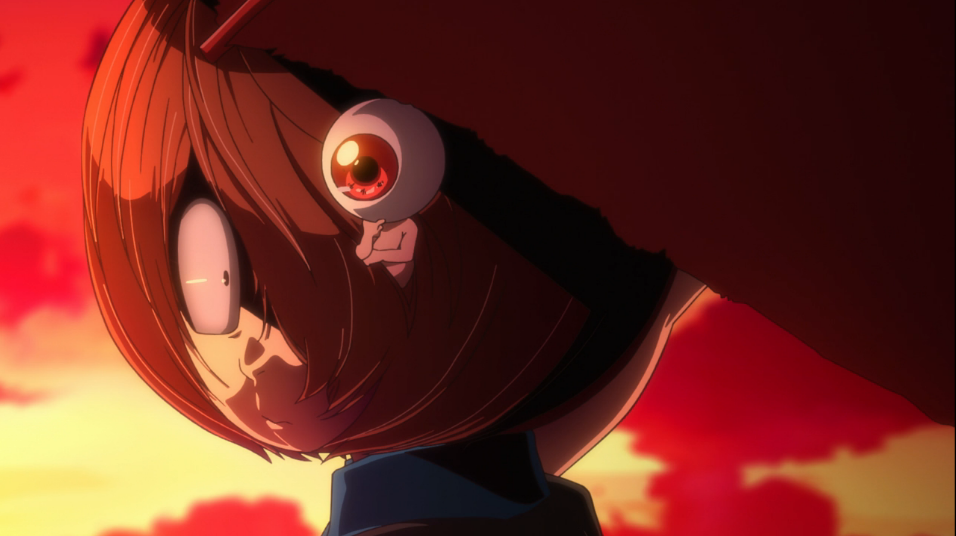
If you've read up on the history of Kitaro, then you know that he was first conceived as a morally grey and even sinister horror figure, as likely to condemn foolish humans to the pits of hell for their hubris as help them out against a malevolent spirit...and usually because there was some kind of reward involved.
More than once, the hapless human of the week has disregarded kitaro's warnings, disrespected the sprit realm, mistreated their fellow humans or simply continued to get themselves into danger after Kitaro already stuck his neck out for them. Display enough arrogance, selfishness or outright malice, and as effortless as it may be for him to save your life just one more time...he's not always going to bother. This is a Kitaro that will step in when you really need him, but not if you go straight back to digging your own grave.
MEDAMA OYAJI
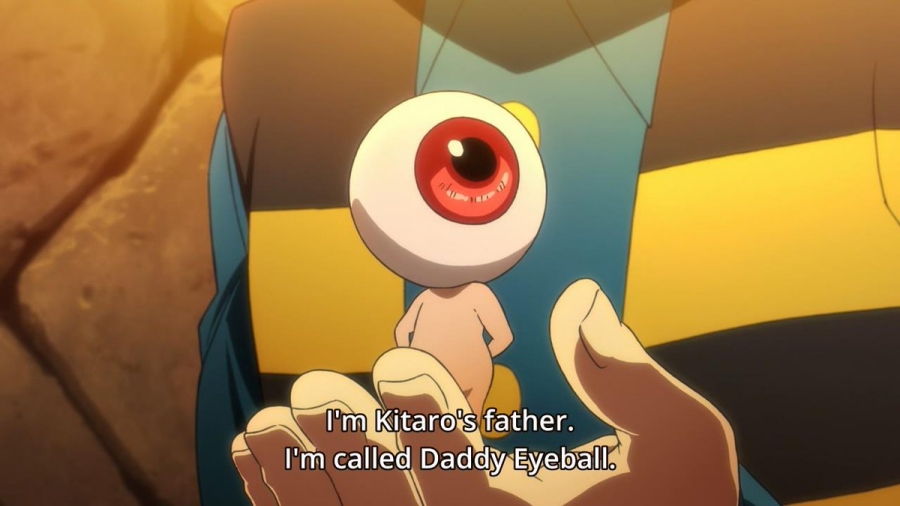
The tiny eyeball yokai that remains of Kitaro's own father has always been the most memorable and marketable of the main cast, and of the two, has always had the most personality. Kitaro is the muscle, and his dad is the mouthpiece. This is played with even more by this series, with Medama Oyaji lamenting at times that his son is so stoic and so dense when it comes to social interaction. We even find out how much he regrets the way he had to raise Kitaro in one of the sweetest and, simultaneously, most badass moments in the show that I refuse to spoil any further. He really acts much more like a father figure in this one, insofar as a tiny, almost helpless undead body organ can be a father figure, and we get to see many more interesting interactions between the two than just his combat advice and yokai knowledge.
This series also marks the very first time "Daddy Eyeball's" voice actor has ever changed. Isamu Tanonaka performed the character in every appearance from 1952 to his death in 2010, and as one of the most beloved children's characters in Japan for even longer than that, those are some pretty massive shoes to fill. Fortunately, those shoes have been filled by fellow legend Masako Nozawa, best known as the voice of Goku and Gohan. Funny enough, she was also one of the voices for Kitaro himself in the 1968 series, so she's no stranger to this franchise, but she really makes a fantastic Medama Oyaji. Try this mp4 clip and tell me if it isn't one of the cutest voices you've heard all day.
NEKOMUSUME
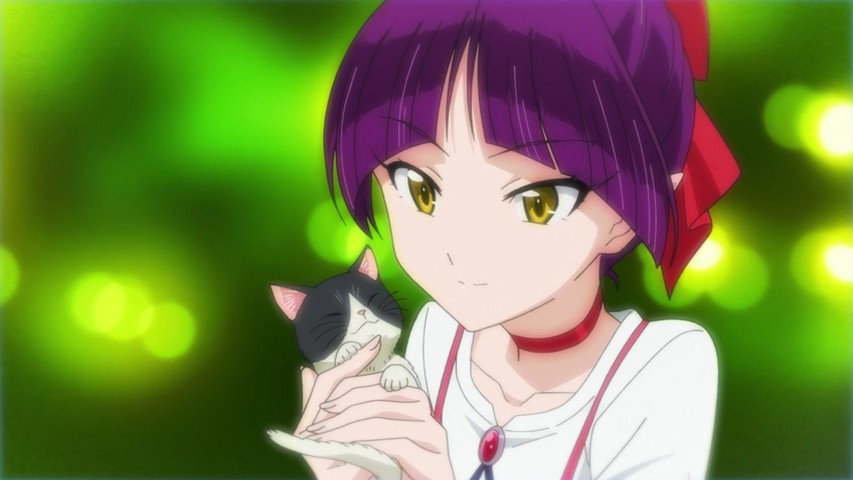
So, this was one of those things I'd had "doubts" about. As I discussed in my original character review, Catgirl, or Catchick in most licensed subs for whatever reason, was best known in the 60's and 70's as a weird looking little goblin child I personally considered a flawlessly charming design. In later reboots, however, she was overhauled into a "cuter" little girl with a much more typical anime style that felt at least a derivative at best, if not uncomfortably pandering to a broader swathe of otaku who care much more about that sort of thing than they probably ought to.
MANA
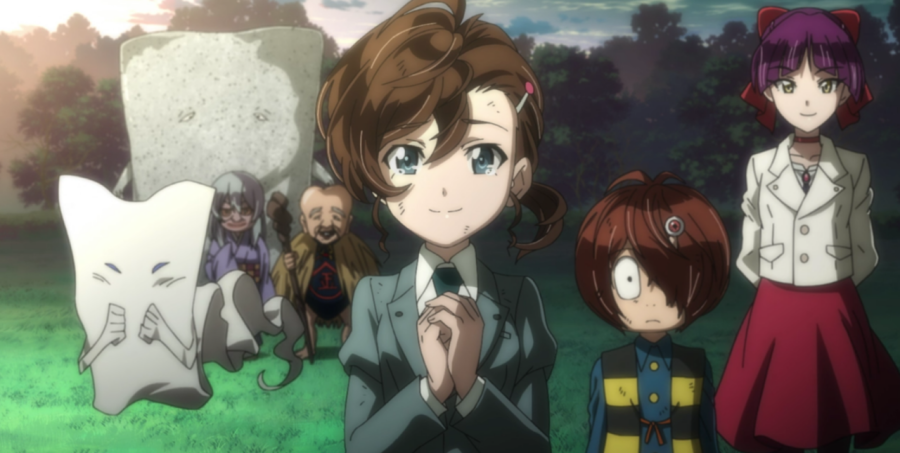
Speaking of children, I was sure I was going to dislike the series' new, original human character to at least some degree. Even moreso than what the 90's and early 2000's did to Catgirl, I thought the addition of a character like this was some sort of network-mandated move to sell a series otherwise full of weird, goofy looking monsters, and I've come to HIGHLY distrust pretty much any anime series that gives significant focus to middle school girls. You know what I mean.
But, rest assured, I can't think of almost anywhere that in this show breaches the creepy territory poisoning so much of the industry, and besides that, she's actually not annoying as a character. She's not even a presence in every episode, but when she does show up, it does feel kind of fun to see the well established monsters and ghosts of this continuity through the eyes of an ordinary, modern human. This isn't a setting that ever needed a "regular kid, just like YOU!" to stand in for the audience, no, but after so many decades of reboot after reboot without a single change to the central cast, this surprise addition actually succeeds at injecting a fresh new dynamic and new story hooks into the usual formula.
NEZUMI OTOKO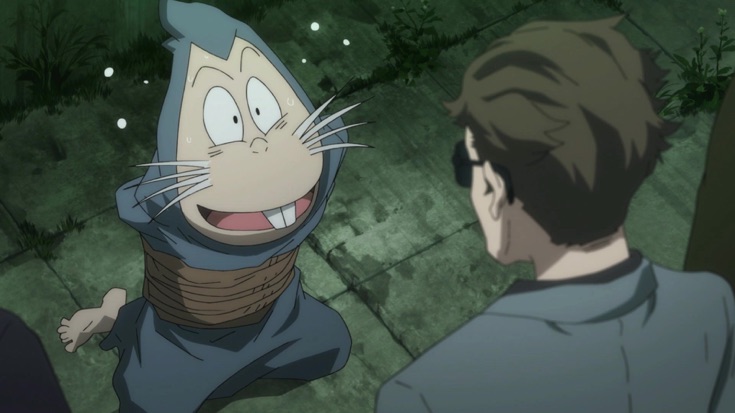
And then...there's Rat Man. Dear, sweet Rat Man. The biggest jerkoff in every series, a half-yokai hybrid who cares about pretty much nothing but fame and fortune by any means necessary. This is an aspect of the new series that might divide some people, and even I'm a little split on it, because while Nezumi-Otoko was always been a two-faced cheat who would trade a friendship for a dollar, but I'm pretty sure he's never, ever, in all these long years ever sunken quite to the supremely RANCID levels he does in this series, and I don't just mean his cherished collection of skin diseases.
Maybe you'll find that you truly just can't stand this guy. There's certainly a couple of things he's done in this show that cross a fairly unforgivable line and are entirely unpleasant to witness. However, he still always manages to add something interesting to the story, and sometimes, even the most Flanderized shitheels hold their own special entertainment value. For us at least, it's easy to be jerked back and forth between wanting him straight-up throttled to death and finding his wretched existence just pathetic enough to let a few things slide. This of course seems to be exactly how Kitaro and his dad feel about the situation...but sometimes, they still just pretend to be asleep when he comes knocking on their door.
THE SERIES OVERALL
With the five most central characters out of the way, just how does the rest of this show stack up to previous Kitaro series? Having seen at least some of every single one and having loved the original manga, I can honestly say that this may actually, really be the most worthy to the legacy of these characters and their late creator. While there are some stumbles here and there, some questionable choices and even some fairly lackluster episodes peppered throughout, the storytelling is quite possibly unmatched by any other animated Kitaro.
The emotional tone of each story exhibits an impressive range, from highly effective tearjerkers to comedy scenarios we've never before seen from these characters. Kitaro is not the kind of character who would normally lose sleep over a dating simulator, and that's even the kind of joke that's been run into the ground by a lot of modern anime, but the context for it and consequences of it in this series are genuinely funny.
Also impressive is where this show is willing to go when it comes to social commentary. At a time when nationalism seems to be rising almost world-wide and many other anime will outright glorify Japan's military history, this is one that pulls no punches in confronting its ugly truths, even devoting one painful episode to the plight of refugees and an entire arc to the terrible power of hate. These were convictions Mizuki Shigeru himself held to his dying day, an unwilling participant in World War II and as true an anti-fascist as there ever was, so as the first Kitaro series produced after his death, the inclusion of this subject matter to any degree is a powerful gesture of respect to such an influential artist. Lighter, but still poignant episodes include at least a few that touch upon the darker side of our social media behavior, one that confronts the exploitative nature of Japan's idol culture and even an obvious parody of Logan Paul in the very first episode, who happens to get transformed into a tree within the first minute.
Admittedly, a Kitaro that addresses the world of smartphones, facebook and youtube may be a Kitaro doomed to date itself. There's a funny sort of timelessness to even the earliest Kitaro stories, which seldom focused on the technology or politics of their period as much as supernatural mysteries any generation can dive into...but after sixty years of Kitaro fighting the same old yokai in the same ageless void, it's a lot more fun than it should be for Medama Oyaji to find out what an app is, and none of it ever feels like some cheap grab at fresh relevancy.
This is a beloved, classic series reimagined with "more relatable" characters in a "more contemporary" setting...and for once, that actually worked out into something great. I recommend this one whether you were always a fan or have never even heard the phrase "ge ge ge" before you clicked on this page. I am by far not an anime fan, but I'd have to place the 2018-2019 (and up??? Hopefully???) Gegege no Kitaro squarely in my top ten, alongside the similarly updated and modified Dororo series I reviewed only a couple of pages back. Between those two and the return of the original-flavor Yo-Kai Watch, it's been a fine year for all manner of spooky, ghostly anime.
MORE HALLOWEEN FEATURES:
